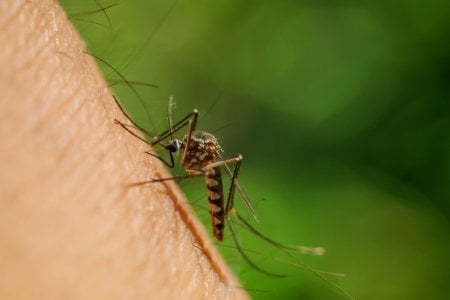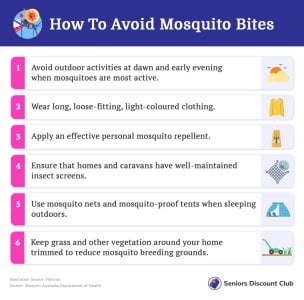Health warning issued as mosquito-borne virus spreads in new region
By
Seia Ibanez
- Replies 4
The Murray Valley encephalitis virus (MVE) has raised concerns in Western Australia, particularly in the Pilbara region, where it has been detected in mosquitoes for the first time this year.
This alarming development has prompted health officials to issue warnings to both residents and travellers to take precautions against mosquito bites.
The virus detection in the Pilbara region follows a similar alert in the Kimberley region, indicating that MVE is active in northern WA, particularly during this time of year.
Mosquito sampling is a crucial method used by the WA Health Department to provide an early warning for virus activity, and the recent findings have put the health authorities on high alert.

'The Pilbara community and travellers to the area can reduce their risk of MVE by protecting themselves from mosquito bites,’ Managing Scientist Dr Andrew Jardine said.
'Thankfully, we've not had any community members contract MVE, but it is best to remain alert.
‘Although the risk of being infected and becoming unwell is low, the illness caused by MVE can be severe and even fatal.’
The symptoms of MVE can be subtle at first but may quickly progress to more severe conditions.
The six critical symptoms to watch out for include:
These symptoms can appear after a mosquito bite, and anyone experiencing them should seek medical attention promptly.
According to Dr Jardine, ‘Young children might only display a fever in the first instance, and parents should urgently see their doctor or local health service if their child is experiencing drowsiness, floppiness or general distress.'
To minimise the risk of mosquito bites and potential MVE infection, the following precautions are recommended:

Visit the HealthyWA website to learn more about MVE and how to protect yourself from these hidden dangers.

Have you taken any special measures to protect yourself from mosquitoes this season? Share your tips and experiences in the comments below.
This alarming development has prompted health officials to issue warnings to both residents and travellers to take precautions against mosquito bites.
The virus detection in the Pilbara region follows a similar alert in the Kimberley region, indicating that MVE is active in northern WA, particularly during this time of year.
Mosquito sampling is a crucial method used by the WA Health Department to provide an early warning for virus activity, and the recent findings have put the health authorities on high alert.

Another case of Murray Valley encephalitis virus (MVE) was detected in northern WA. Credit: Shutterstock
'The Pilbara community and travellers to the area can reduce their risk of MVE by protecting themselves from mosquito bites,’ Managing Scientist Dr Andrew Jardine said.
'Thankfully, we've not had any community members contract MVE, but it is best to remain alert.
‘Although the risk of being infected and becoming unwell is low, the illness caused by MVE can be severe and even fatal.’
The symptoms of MVE can be subtle at first but may quickly progress to more severe conditions.
The six critical symptoms to watch out for include:
- Fever
- Drowsiness
- Headache
- Stiff neck
- Nausea
- Dizziness
These symptoms can appear after a mosquito bite, and anyone experiencing them should seek medical attention promptly.
According to Dr Jardine, ‘Young children might only display a fever in the first instance, and parents should urgently see their doctor or local health service if their child is experiencing drowsiness, floppiness or general distress.'
To minimise the risk of mosquito bites and potential MVE infection, the following precautions are recommended:

Visit the HealthyWA website to learn more about MVE and how to protect yourself from these hidden dangers.
Key Takeaways
- Murray Valley encephalitis virus (MVE) has been detected in mosquitoes in the Pilbara region of Western Australia for the first time this year.
- Residents and travellers are advised to take precautions to protect themselves against mosquito bites.
- Symptoms of Murray Valley encephalitis include fever, drowsiness, headache, stiff neck, nausea, and dizziness.
- Health officials emphasise the importance of seeking medical attention if experiencing symptoms after a mosquito bite, as the virus can cause severe and potentially fatal illness.
Last edited:







